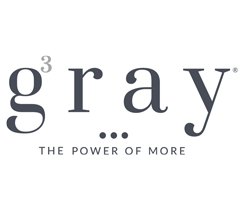Energy bill, budget cuts collide
Look for another contentious conference over energy legislation in Congress this fall. Rather than slug it out provision by provision on the Senate floor, the Senate has passed the same bill it approved last year.
Sen. Energy & Natural Resources Committee Chairman Pete Domenici (R-NM) says he will try to amend the bill in conference, but didn’t say if he will push for tax breaks for propane use.
While Congress debates a major energy bill, it is simultaneously moving to cut funding for energy programs.
The full House and the Senate Appropriations Committee approved separate 2004 spending bills for the Department of the Interior. The House version would cut funding for some energy conservation programs. The Senate bill would provide $2.35 million for State Energy Activities. Both bills would cut the Weatherization Assistance Program – the House by $48 million, the Senate by $58 million – from the administration’s request.
But the weatherization cut bothered two House Appropriations Committee Democrats, who filed a dissent. They asked that the program get the full $288 million the president requested, noting that each weatherized home saves an average of $4,650 in energy costs over a life cycle.
Both bills would increase State Energy Program funding by $5 million. The House bill would fund fuel cell technologies at $56 million; the Senate bill would provide $68 million.
Both bills also would cut funding for the Northeast Home Heating Oil Reserve by $961,000 to $5 million, as the administration requested. The 2 million-barrel reserve is designed to keep Northeastern homes heated in winters when fuel supplies are low and threatened. Savings are expected to come from lowered storage costs, not a reduction in capacity.
Created three years ago, the reserve has never been tapped. The Department of Energy has never publicly stated what circumstances would prompt it to use it. The House Appropriations Committee, therefore, asked it to do so before next winter.
Briefly speaking
LIHEAP funding
Funding for the $2 billion-a-year Low Income Home Energy Assistance Program hasn’t kept up with the increase in poor people who need it, Carolyn Drake, Washington director of the Southern States Energy Board told the House Education & the Work force Committee. LIHEAP once served 20 percent of eligible households; it now reaches only 15 percent. She also complained that the funding formula has not reflected increases in the population of the South.
Hazmat regs OK’d
The Research & Special Programs Administration has issued new final hazardous materials regulations to conform to international standards. It revised shipping names, hazard classes, packing groups, etc. For details, see the July 31 Federal Register.
Pipeline safety dollars
RSPA has issued several research and development grants to improve pipeline safety. CC Technologies and the Pipeline Research Council International get $80,000 to develop guidelines to fight damage caused by hydrogen, coating disbondment and blistering. Another consortium got $390,000 to figure out how to expand the No Pig Pipeline Inspection System than is currently possible.
Clinton proposals dropped
The Federal Motor Carrier Safety Administration has officially dropped some Clinton-era proposals, including a five-year-old plan to require FMCSA inspectors to follow the North American Uniform Out-of-Service Criteria. Another dropped plan would have required English language proficiency of drivers.
















